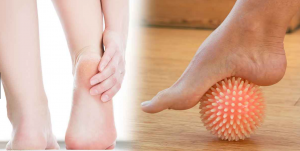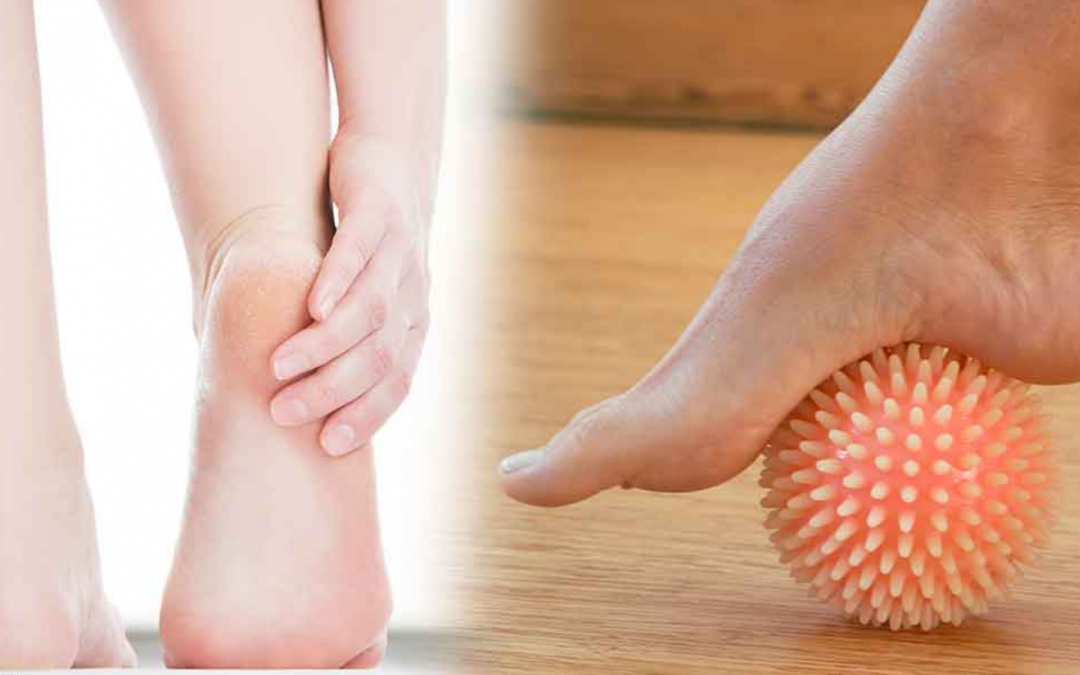Plantar Fasciits
We all lead busy lives and foot pain is no joke and can make a tough day even tougher. If you wake up, step out of bed, and you are greeted with a stabbing pain in your heel that gets milder over the day as you begin to use your foot, but returns if you stay still too long, than you may have Plantar fasciitis. What is Plantar fasciitis? What did you do to cause this? What can you do to make it go away? How long will it take to get back to the life you love?
What is Plantar Fasciitis?
Plantar fasciitis is a sprain of the tissue that connects your heel to your toes. Normally this tissue helps absorb the jarring energies of your body weight with every step you take, but now something has gone wrong and that band of tissue has begun to fray or tear. What happened?
What Causes Plantar Fasciitis?
There are many risk factors that can deliver more force on your foot than your foot can handle. First and foremost is carrying too much weight. Do you have a few extra pounds or work all day on your feet, lifting, and moving heavy things? Are you a runner, a dancer, or a competitive hop scotch champion? Do you do anything that causes your feet to work harder than they should? Do you have high or low arches and poor arch support? Do you have that lucky pair of worn old running shoes that your friends and family cringe at when they see you in them? These things have commonalities and that is repetitive jarring energy put on your feet. What can I do now to fix this?

“Stretching Your Arch is Key.” Dr. Donald Stewart, Foot & Ankle Surgeon, AOA
Pro Sports Orthopedics advice: What is best treatment of Plantar Fasciitis
There is good news and bad news. The Good news is that this condition is usually non-surgical and usually does not require a specialist to treat. The bad news is that recovery can be a slow process. Mild sprains, and Plantar fasciitis is a sprain, should be first treated with R.I.C.E. If you have never heard of R.I.C.E. it is just a simple way to remember Rest, Ice, Compression, and Elevation (above your heart). Over the counter NSAIDs can help temporarily manage the pain. Stretching your arches is key. Checking to make sure your shoes are supporting your arches. There are also over the counter splints that you can wear at night to help stretch the arch.
For Orthopedics care and the best treatments of Plantar Fasciitis call today! 817-375-5200
It is a long process of weeks to months for Plantar fasciitis to heal on its own, but with proper shoes, rest, splints, and stretches you can reduce the amount of time it takes to heal. Also, one should keep in mind that walking around in pain causes us to avoid the areas of the foot that hurt, shifting our weight onto muscles that don’t. This imbalance adds stress to your knees, hips, and back. Left unchecked you could be reading another article on one of those body parts. Start the path to recovery today.
For more information on Dr. Stewart and his practice, visit him online HERE.



